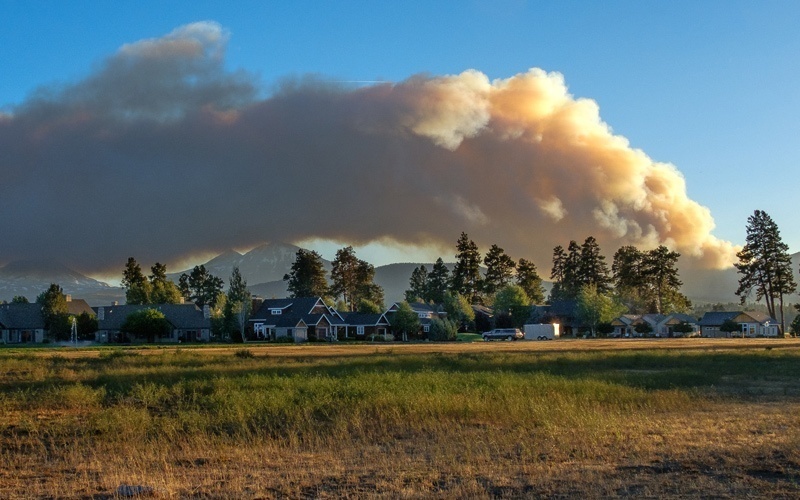Many factors influence a person’s sensitivity to smoke, including severity and duration of smoke exposure and a person’s health. Your health and the health of your family are important. There are things you can do to minimize the impacts of smoke on you and your family.
Smoke is made up primarily of small particles, gases, and water vapor. These particles can be inhaled deeply into the lungs, damaging lung tissue and causing respiratory and cardiovascular problems.
Regardless of the source, smoke is a form of air pollution that can pose a health risk. Symptoms of short-term smoke exposure can include:
- Watery or dry eyes
- Persistent cough, phlegm, wheeze, scratchy throat, or irritated sinuses
- Headaches
- Shortness of breath, asthma attack, or lung irritation
- Irregular heartbeat, chest pain, or fatigue
To learn more about air quality index (AQI) and how to check it, visit the Smoke and Air Quality page.

Sign up to receive smoke & health related emails this fire season.
What can people do to protect themselves and reduce their exposure to smoke?
Many factors influence a person’s sensitivity to smoke, including severity and duration of smoke exposure and a person’s health. Smoke may worsen symptoms for people who have pre-existing health conditions and those who are particularly sensitive to air pollution. Sensitive groups include:
- Persons with asthma or other chronic respiratory diseases, such as COPD
- Persons with cardiovascular disease
- Persons 65 years of age or older
- Infants and children
- Pregnant women
- Smokers, especially those who have smoked for several years
If you feel that smoke may impact you, use the following guidelines:
- Limit your exposure to smoke.
- Reduce time spent outdoors when smoke is present. This can usually provide some protection, especially in a tightly closed, air-conditioned house. Set your A/C or heating unit to recycle or recirculate when at home or in your car, to limit your exposure.
- Reduce the time you engage in vigorous outdoor activity. This can be an important, effective way to lower the amount of smoke you are breathing in. It can minimize health risks during a smoke event.
- Stay hydrated. Drink plenty of water.
- Reduce other sources of indoor smoke and dust. These can be burning cigarettes, candles, gas or propane ranges, wood burning stoves and furnaces, and vacuuming.
- If you have heart or lung disease or respiratory illnesses such as asthma, follow your health care provider’s advice about prevention and treatment of symptoms.
- More vulnerable or smoke sensitive persons may consider using an indoor high-efficiency air filter (HEPA) or electrostatic precipitator for your home or to help create one or more rooms with cleaner air to breathe.
- Before you go to bed at night, close doors and windows to prevent outside smoke from getting inside and keep indoor air clean.


